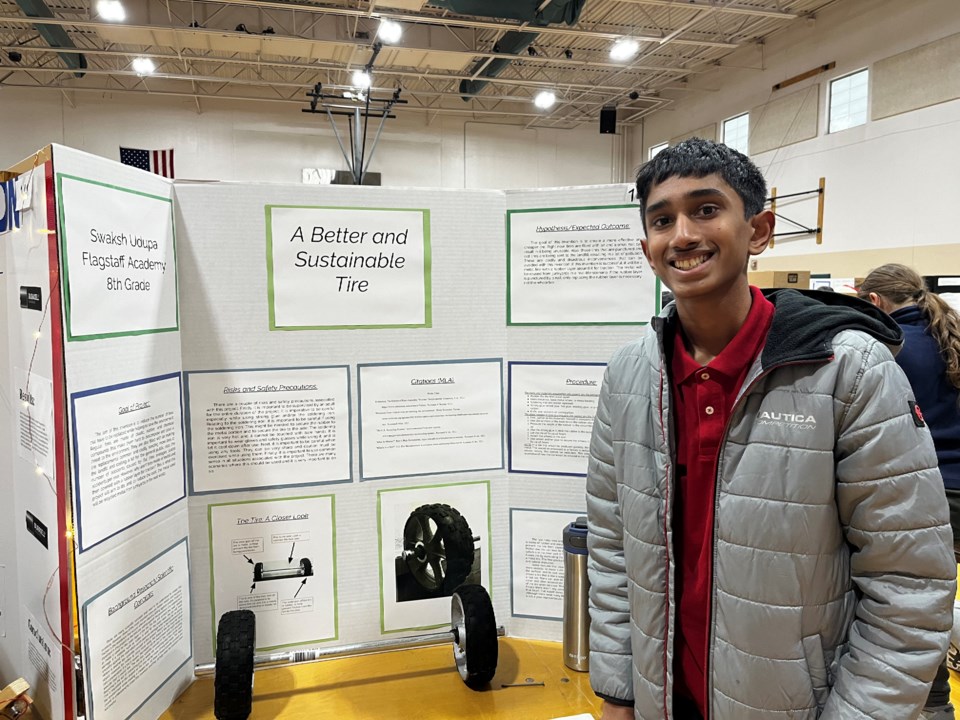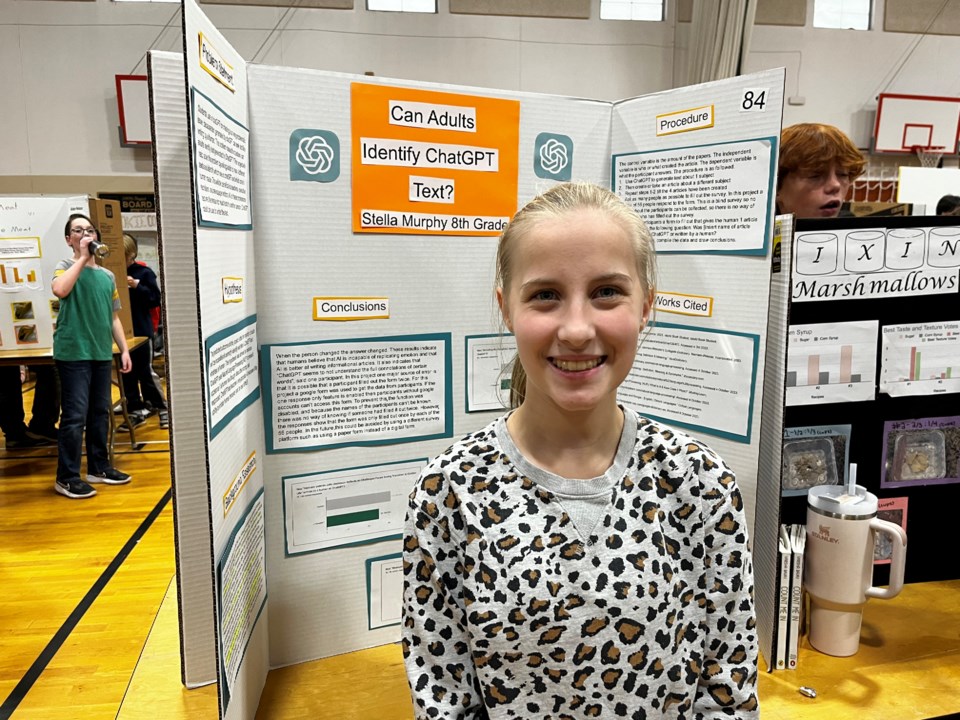For 18 years, Flagstaff Academy has encouraged its students to participate in its annual STEM fair. This year around 200 students entered and 10 will advance to the 2024 Corden Pharma Regional Science Fair in February.
Stella Murphy, who is in eighth grade, was curious how well adults could identify an article written by ChatGPT versus a human. She asked the artificial intelligence program to write two articles for her; one informational and the other a human interest story. She also found similar types of articles from Reader’s Digest from 2021, just before the AI program began to become popular.
Murphy found that most adults were able to discern which of the informational articles was written by the AI program, however, they struggled when it came to the human interest articles.
She concluded that most people believe that emotion is something that AI is unable to replicate, which her research discovered was not true.

Classmate Swaksh Udurpa took inspiration from a series of flat tires his family experienced over the summer. Udurpa said he learned how frustrating the situation was and how expensive it was to replace the tires. He also discovered that there are many challenges in recycling a tire.
Determined to find another way, he created a tire that would not go flat, reduced the amount of rubber used and made recycling easier, he said.
Each year the STEM fair is opened to students in grades 6-8. All students in these levels must create a project, however, it is optional to enter into the STEM fair.
This year’s STEM fair is the largest the school has seen with over 160 projects entered. Students were asked to stand by their projects while judging commenced and provide a short presentation on their projects and their findings.
The winners were announced on Tuesday afternoon. Ian Pfenning, eighth grade, won first place for designin an AI powered pet feeder. Maya Rokhlenko and Olive Spohn, both eighth graders, teamed up for the second place prize for their project titled “All Boxed Up: The Effects of Prescription Eyewear on Peripheral Vertigo.” Isaac Vercammen and Oliver Hahn, seventh graders, created a hydraulic robotic prosthetic arm.
Another seven projects were selected to advance to the regional fair in February.


